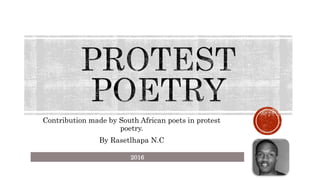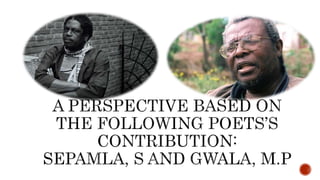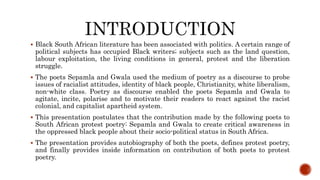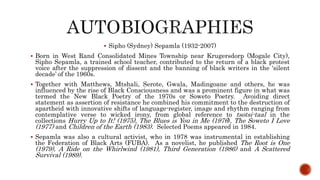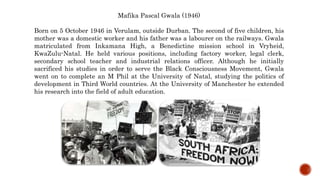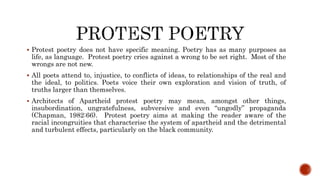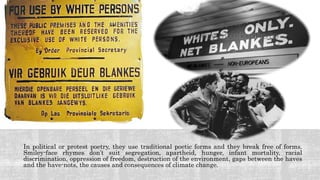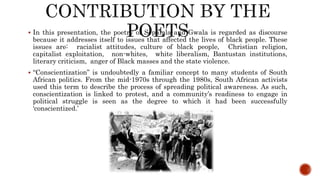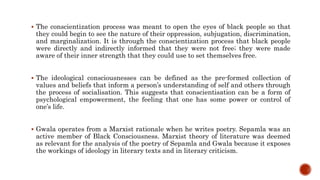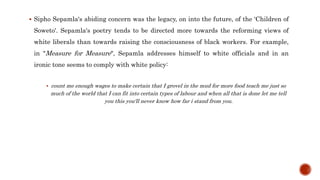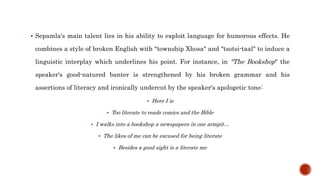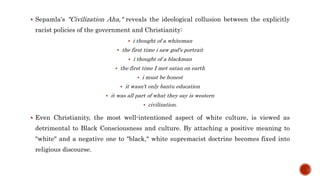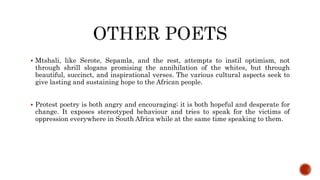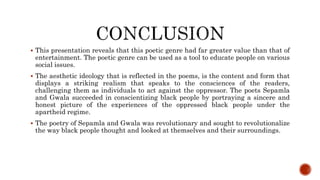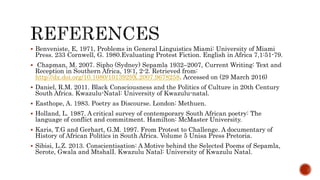The document discusses the contributions of South African poets Sipho Sepamla and Mafika Pascal Gwala to protest poetry in apartheid South Africa. It provides biographies of the two poets and discusses how their poetry was used to raise critical awareness among black South Africans about their socio-political oppression under apartheid. The poetry probed issues like racial attitudes, black identity, Christianity, and capitalism. It aimed to agitate and motivate readers to react against the racist system. The presentation analyzes some of Sepamla and Gwala's poetry to show how it conveyed messages of protest through innovative language techniques.
